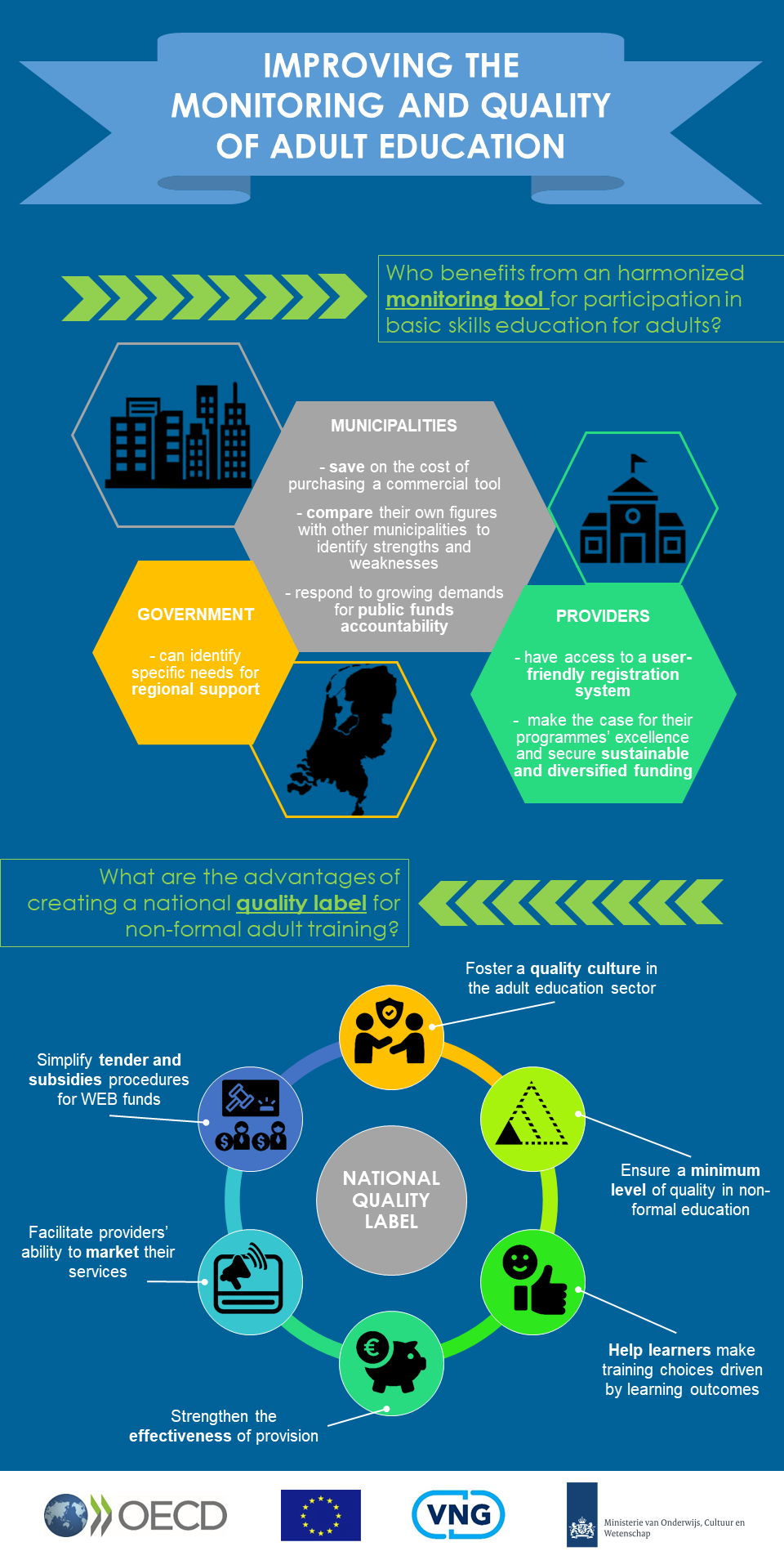Participation in adult learning in the Netherlands is very high by international standards, reaching close to 60% of adults according to the Survey of Adult Skills (PIAAC). Yet, still 15% of the adult population lacks the skills that are required to successfully participate and manage transitions in the labour market and in the digitalised economy. In order to address the flaws of the current system, the Minister of Education, Culture and Science and the Minister of Health, Welfare and Sport, the State Secretary for Social Affairs and Employment and the State Secretary for the Interior and Kingdom Relations have agreed to join forces and allocate significant funding to the New Approach to Low Literacy, 2020-2024.
Better quality and monitoring in the Netherlands
The project "Improving the quality and Monitoring of basic skills education for adults in the Netherlands" aims at developing a monitoring instrument to measure participation in basic skills courses and a quality assurance framework for non-formal training.

Context
Relevance
The Netherlands has no systematic data collection on the uptake of basic skills courses and their impact on social inclusion and career development of participants. Similarly, the rapidly expanding offer of non-formal courses lacks a proper quality assurance framework, resulting in unequal levels of quality and effectiveness of training programmes across the country, depending on the provider. As a result, the development of a monitoring tool and a quality assurance framework for non-formal training would contribute to better grasp and reap the full benefits of the recent New Approach to Low Literacy initiative.
The Project
Against this background, the Ministry of Education, Culture and Science has requested technical assistance to the European Commission’s Structural Reform Support Programme and the OECD to support the monitoring and quality assurance of the training provided under the New Approach to Low Literacy. The project brings together the main actors in the adult education landscape of the Netherlands – and especially the municipalities – in order to develop a monitoring instrument to measure participation in basic skills courses and their impact on participants’ social inclusion and career development and a quality assurance framework for non-formal training in basic skills.
Outputs and Activities
During workshops, seminars and ad hoc working groups, representatives of municipalities and experts are discussing how both international and Dutch good practices can be translated in their local context, which indicators are most relevant for the monitoring, and which tailor-made quality assurance elements can be used to ensure quality of trainings and evaluate providers’ performance. Consultations will result in the creation of a unique ICT instrument to monitor the participation in basic skills trainings, and a toolkit that will help and guide municipalities’ staff in implementing the new instrument. Quality assurance elements for local policy-making will also be developed. The project is expected to end in December 2020.


Funded by the European Union via the Technical Support Instrument, and implemented by the OECD, in cooperation with the European Commission.